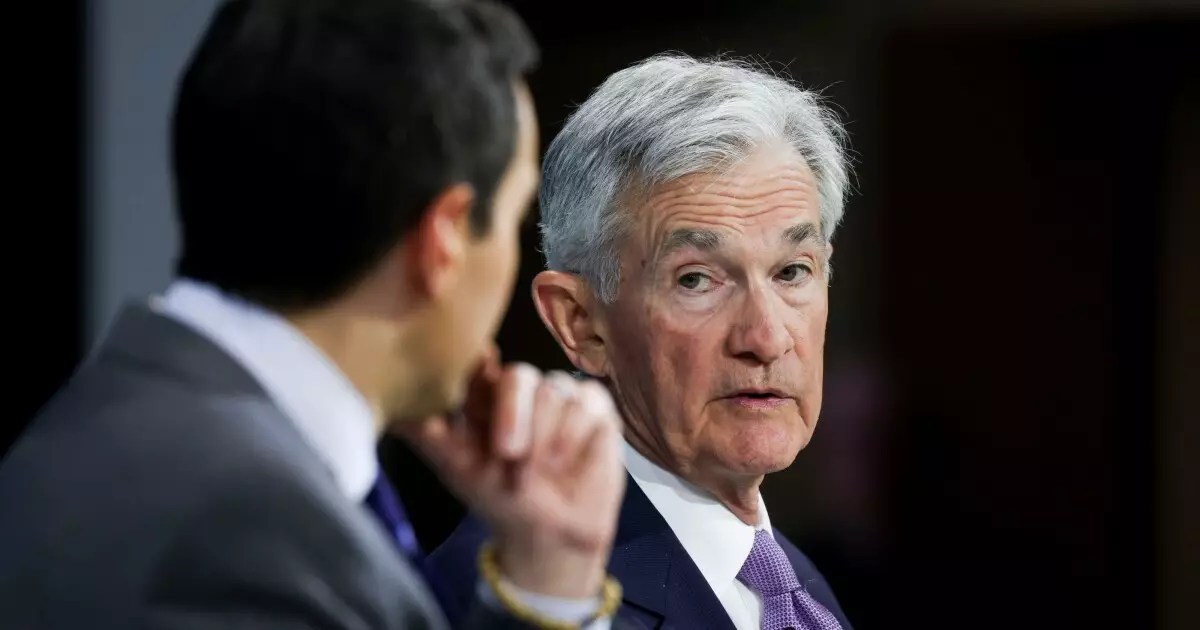In the context of the Federal Reserve’s operations, the relationship between its leadership and the political landscape is crucial, particularly during transitions of power. Jerome Powell, the current chair of the Federal Reserve, recently addressed concerns regarding the potential for interference in his role due to the Trump administration. His comments shed light on the significance of the Fed’s autonomy and the interplay between economic policy and political maneuvering.
The term “shadow chair” came to prominence through remarks made by Scott Bessent, a hedge fund manager and advisor to Donald Trump, who indicated that Trump could announce his Federal Reserve chair nominee well before Powell’s term ends. This raises the specter of a political move that could diminish Powell’s authority by creating an alternate narrative and expectations around monetary policy. Bessent’s argument hinges on the notion of “forward guidance,” where the market adjusts based on anticipated policy changes. Such an approach suggests that preemptively naming a successor could undermine Powell’s decisions, particularly in his final year, engendering concerns around the Fed’s stability during a politically charged environment.
Despite the potential for political schisms, Powell expressed confidence in establishing a constructive rapport with the incoming Trump administration. Citing a long-standing tradition of collaboration between the Treasury Secretary and the Fed Chair, Powell highlighted the necessity of building trust and mutual respect. Such relationships are vital, particularly during economic crises, where coordinated responses can mean the difference between recovery and prolonged distress. This perspective indicates that while political influence is a reality, the commitment to maintaining strong institutional frameworks can mitigate risks of politicization.
A core tenet of Powell’s discussion was the importance of the Fed’s independence. He articulated that while the institution derives its authority from Congress, it has a mandate to operate free of direct political pressures. This autonomy is essential for making impartial decisions that serve the broader public interest rather than aligning with specific party agendas. Powell’s reiteration of these values reflects an inherent tension within the political landscape, where elected officials may seek to exert influence over monetary policy decisions. Understanding this independence framework becomes critical, especially as various administrations come into power, bringing with them differing economic philosophies.
The Fed’s approach to incoming tariffs proposed by Trump was another focal point during Powell’s remarks. He emphasized that the economic ramifications of these policies—such as the breadth, duration, and impact of tariffs—have yet to be fully assessed, and thus preemptive policy adaptations were premature. This response highlights a methodical approach to economic forecasting within the Fed, one that prioritizes current data over speculative predictions based on political promises. By advocating a careful assessment of evolving economic conditions, Powell signaled the Fed’s commitment to data-driven policy-making in the face of political uncertainty.
As digital currencies gain prominence, Powell acknowledged the Fed’s regulatory role vis-à-vis cryptocurrencies and their interaction with traditional banking systems. The need for a balanced approach is paramount, ensuring that innovation does not jeopardize the integrity and safety of the established banking system. His emphasis on consumer protection characterizes a forward-thinking regulatory mindset, poised to safeguard public interest while enabling technological advancements. The intersection of finance and technology is fraught with challenges, but Powell’s insights indicate an intention to navigate these complexities without stifling innovation.
While Jerome Powell faces various challenges amid the shifting political landscape under the Trump administration, his adherence to the principles of independence and a commitment to constructive relationships set a sturdy framework for the Fed’s operations. The delicate balance between economic policy and political influences will continue to shape the role of the Fed as it navigates changing tides and expectations in the global economy. Ultimately, the effectiveness of Powell’s leadership may well define how the Fed upholds its fundamental mandates in turbulent times.


Leave a Reply